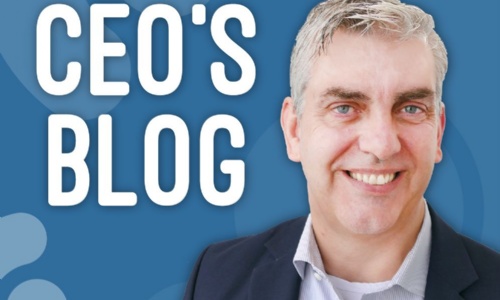Schools won’t be inclusive until their efforts also apply to staff

To make education truly inclusive, we need to employ neuro-diverse staff as positive role models. Read my piece in SchoolsWeek here.
From SchoolsWeek, December 2019 - view the full article here.
Our own experience of education inevitably colours our judgment of “what works”. Having a diverse range of perspectives within the system seems to me a vital part of the drive for real inclusion, and not just for the benefit of neuro-diverse children. That’s why my ambition is for 50 per cent of our former students to be employed at one of our schools. After all, they continually prove they have the skills.
According to the National Autistic Society, just 16 per cent of autistic adults in the UK are in full-time paid employment. There is no separate breakdown for those working in education, but that headline figure suggests it must be tiny. Yet we run a successful alumni peer mentorship programme and, since 2018, have successfully employed a small group of former students.
Roles have been designed that play to our alumni’s strengths, rather than assigning them to predefined jobs that don’t. Each has an experienced mentor to support their development and, crucially, each is invited to present to the whole staff team from a strength-based perspective about their neuro-diversity, while also being clear about what their triggers are.
There is no doubt our current cohort has benefited from these practices. Last week some of them stood in front of a packed audience in the imposing setting of the House of Commons to tell us in striking terms what inclusion meant to them.
Having been permanently excluded multiple times before reaching our schools, all have complex and co-morbid social, emotional and mental health (SEMH) needs or autistic spectrum conditions (ASC). Sharing their personal narratives of isolation, rejection and overwhelming loneliness, they spoke of how they had found friendships, forgiveness and a future.
During the parliamentary event, we shared research from Goldsmiths University. Having never permanently excluded one of our 3,000 pupils, we felt that hearing how our approach impacted on students in their own words would offer powerful insights for education as a whole. And it does. Students repeatedly came back to two themes: being given regular opportunities to practise their empathy and being encouraged to have high expectations of what they could achieve.
They spoke of belonging, and the sense of security that came from knowing that staff, including staff like them, would never give up. They reflected on the care taken to understand them for who they were; being encouraged to think about what they could contribute rather than what they were lacking.
Witnessing these young people, so full of hope and purpose, I was also struck by a question: “What next?” When these young people become parents and start their future careers, will school continue to be a place where they feel comfortable and valued, as mums and dads, as teachers, mentors, and senior leaders? Or will their neurodiversity once again be categorised as difficult and lacking.
It makes me angry that the answer to that final question might well be yes. All of us have a duty to think honestly and ambitiously about inclusion. It’s not good enough to equate it simply with how we treat students and go no further.
The glow of last week’s celebration event is still with me. But until we have scores of parents, teachers, governors, teaching assistants and senior leaders with SEMH and ASC. They all have stories to share of how schools transformed their lives, understood their challenges and never gave up on the. There is a huge amount of inclusion work for all schools to do. We’ve embarked on that journey and we are never looking back.

